Posted on 05/12/2025 15:26 PM (Detroit Catholic)
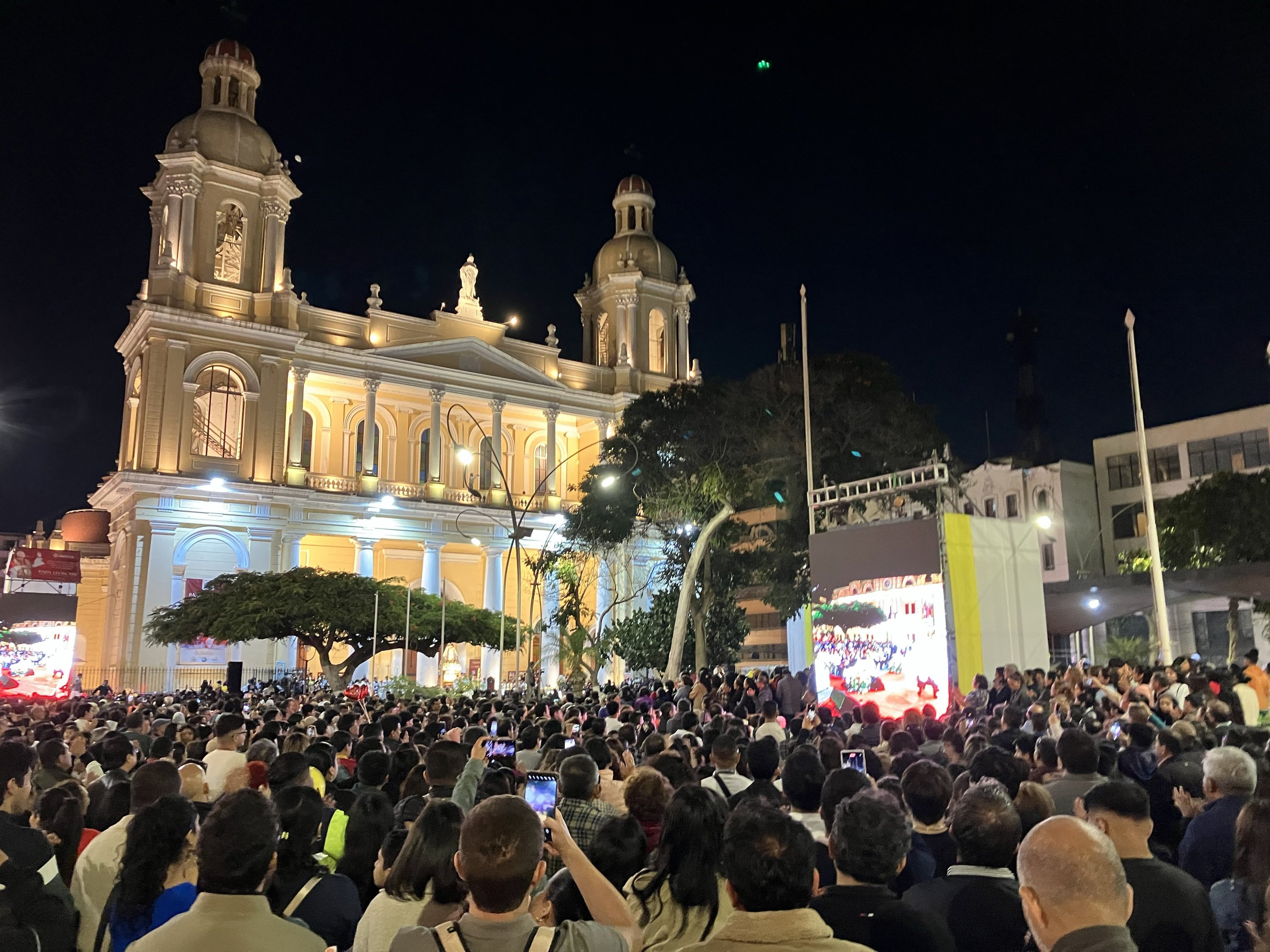
Posted on 05/12/2025 15:24 PM (Detroit Catholic)
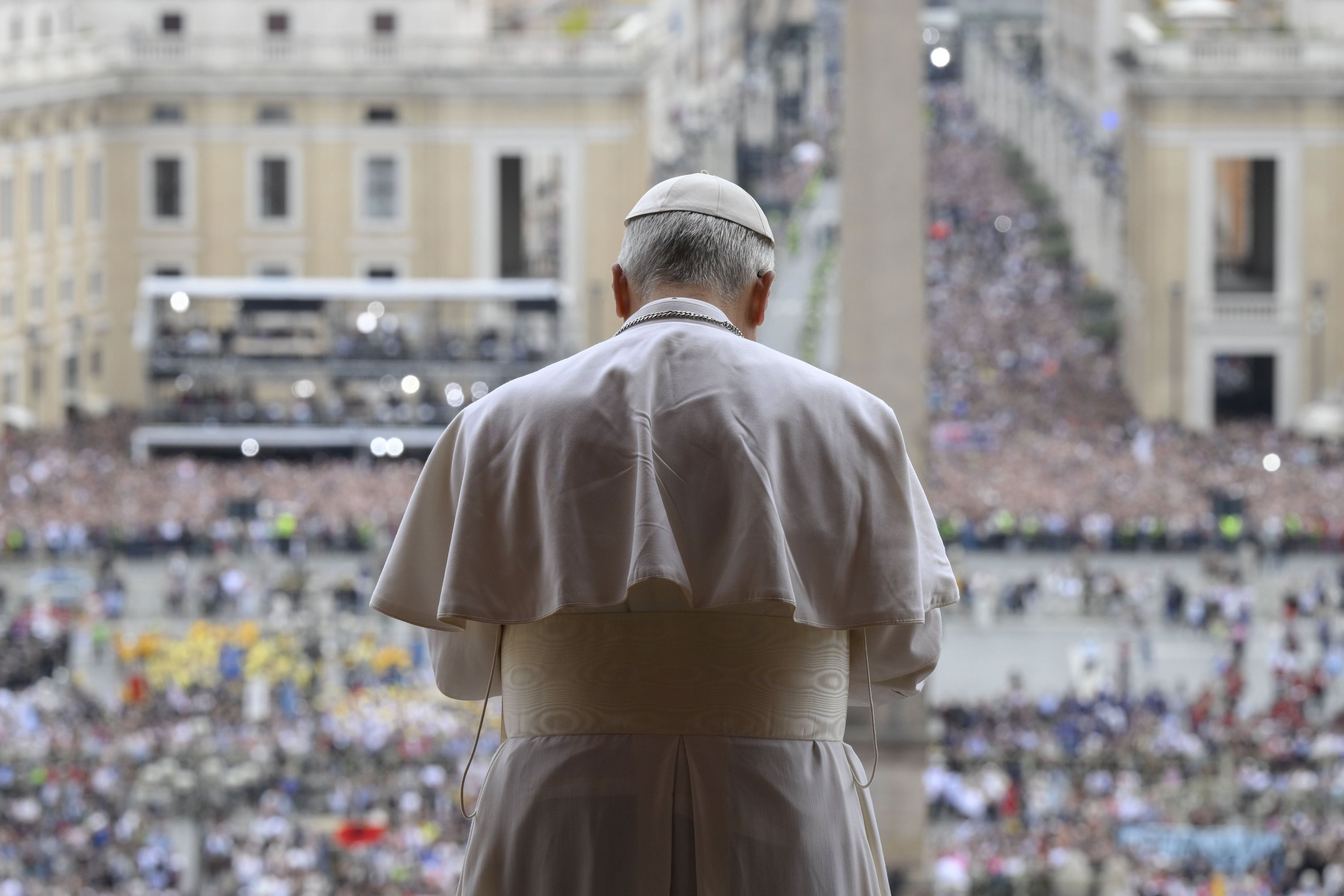
Posted on 05/12/2025 14:46 PM (Detroit Catholic)
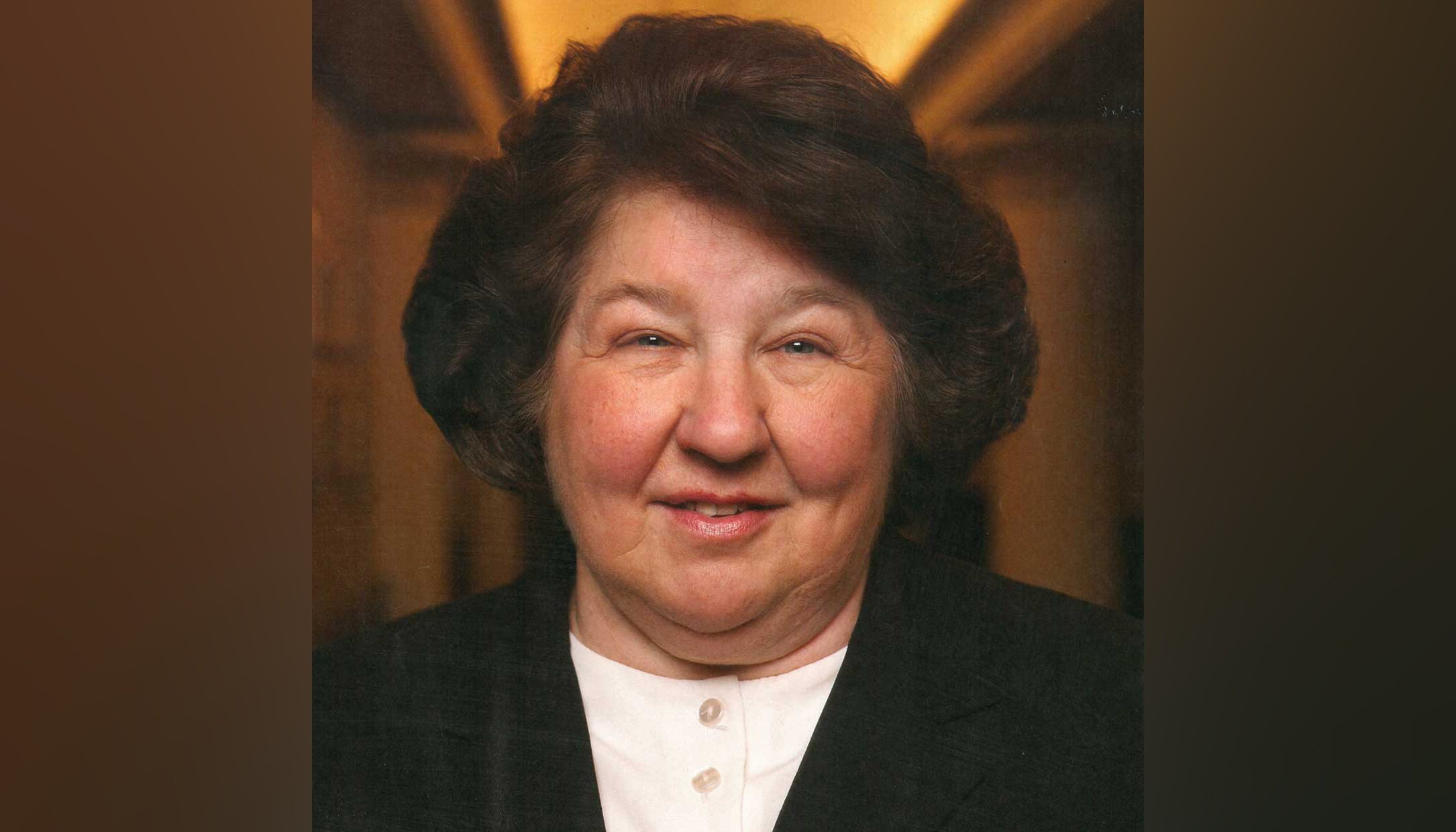
Posted on 05/12/2025 14:40 PM (CNA Daily News)
 A burnt scooter on May 9, 2025, stands on the spot where twins Zian Khan and Urwa Fatima died on May 7 during Pakistani artillery shelling in the main town of Poonch district. / Credit: PUNIT PARANJPE/AFP via Getty Images
A burnt scooter on May 9, 2025, stands on the spot where twins Zian Khan and Urwa Fatima died on May 7 during Pakistani artillery shelling in the main town of Poonch district. / Credit: PUNIT PARANJPE/AFP via Getty Images
Bangalore, India, May 12, 2025 / 10:40 am (CNA).
A Catholic school and convent in India came under shelling from Pakistan military forces last week, with three students killed in the town of Poonch close to the Pakistan border, as fighting between the two countries’ militaries broke out before ending quickly over the weekend.
“One shell fell near our Christ School campus at Poonch, killing a twin brother and sister. The siblings were our students,” Jammu Bishop Ivan Pereira told CNA. The Jammu Diocese covers the entire state of Jammu and Kashmir.
“Another shell fell over the convent of the Carmelites of Mary Congregation. But it damaged only the water tank and solar panels. The school has been closed and the nuns have been moved to a distant convent,” Pereira said.
“Now the priests, nuns, and laypeople are engaged in arranging safer places for the fleeing people and arranging them night shelters,” he added.
Indian security forces launched aerial assaults against what they said were nine terrorist centers inside Pakistan early on May 7. The attack left 31 dead.
The government blamed Pakistan for allegedly supporting terrorists active on the Indian side of Kashmir, including the reported April 22 mass killing of 26 non-Muslim male tourists in the Pahalgam valley of Kashmir.
Following the Indian assault, Pakistani security forces intensified ongoing shelling in border areas, especially in the vulnerable Poonch township, located only eight miles from the border.
“The two students who died were hit by splinters from shelling when they were moving out to flee the area with their parents after their house was hit by a shell,” Father Shijo Kanjirathingal, the principal of the Christ School in Pooch, told CNA.
“A third student from our school was hit on the head by splinters in a moving vehicle,” the priest said.
“The shelling was very intense [on Wednesday morning] and shells hit the houses near the school compound. Though no shell hit our school buildings, a lot of glass panes have been shattered from splinters,” Kanjirathingal said.
“Thank God, nobody was injured in our compound, which houses over two dozen staff including 16 teachers,” said the priest, who belongs to the Carmelites of Mary Immaculate congregation.
“To ensure their safety, all the resident staff hailing from outside the state have been moved out. Our second Christ School closer to the border also has been shut and staff were evacuated. We used the school bus to move the people,” the priest said.
With the situation worsening and Pakistan vowing “retaliation” to Indian attacks, the government evacuated thousands of people from the villages along border areas as 18 people were killed amid Pakistani shelling.
Yet the two countries announced a cessation of hostilities over the weekend, with the conflict ending abruptly after just a few days of fighting. The agreement appeared to be holding into Monday morning.
India and Pakistan have fought three bitter wars over the snow-capped Kashmir region in the Himalayas. The area was divided between India and Pakistan during the partition of the Indian subcontinent in 1947 into Muslim-majority Pakistan and Hindu-majority India, ending more than a century of colonial British rule.
The latest trigger for the worsening tension was an April 22 terrorist attack on tourists in the snow-capped Pahalgam tourist area in which 26 non-Muslims were killed.
Among 26 tourists shot dead by the Muslim militants was Susil Nathaniel, a Catholic who was executed in front of his wife and children reportedly for failing to recite a Muslim couplet.
Bishop Thomas Mathew of Indore in central India presided over the April 24 funeral of Nathaniel, describing the 57-year-old insurance company officer as a “double martyr” who laid down his life “for the nation and for the Catholic faith,” UCA News reported.
Pope Leo XIV, meanwhile — in his first Regina Caeli address at St. Peter’s Square on Sunday — hailed the cessation of hostilities announced by both countries over the weekend.
“I rejoice at the recent peace made between India and Pakistan,” the pope said, adding that he hoped for a lasting accord.
Posted on 05/12/2025 14:03 PM (Detroit Catholic)

Posted on 05/12/2025 13:46 PM (Detroit Catholic)
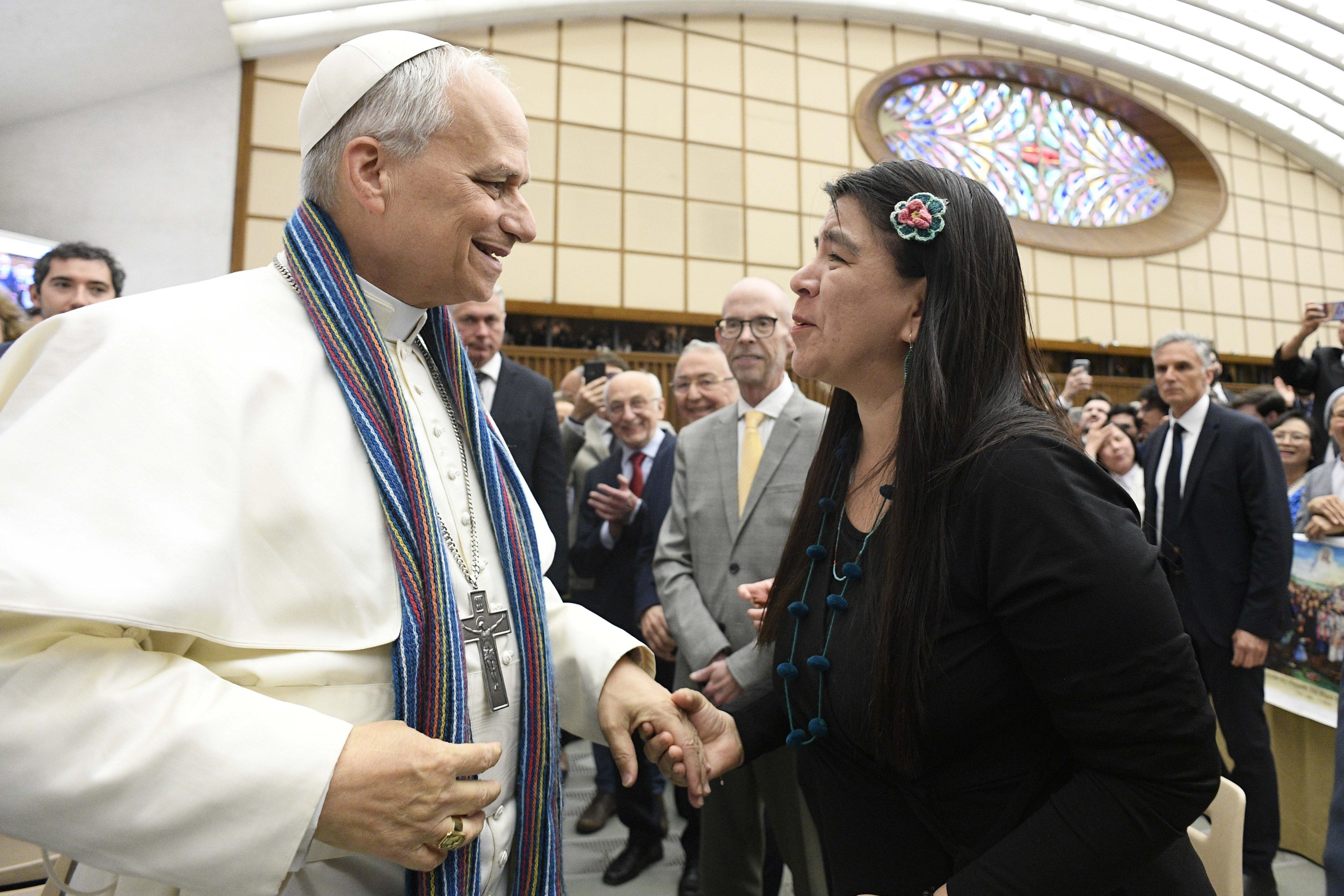
Posted on 05/12/2025 13:44 PM (Detroit Catholic)
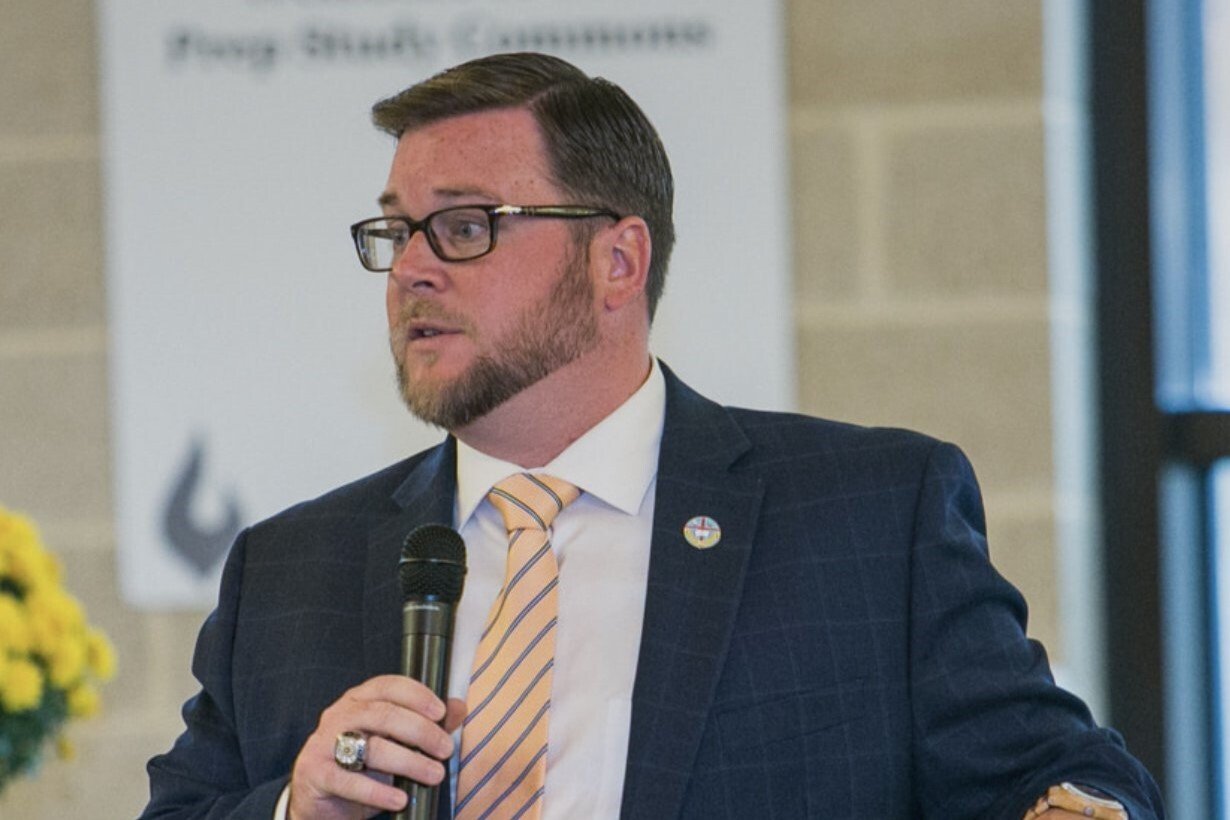
Posted on 05/12/2025 13:42 PM (Detroit Catholic)
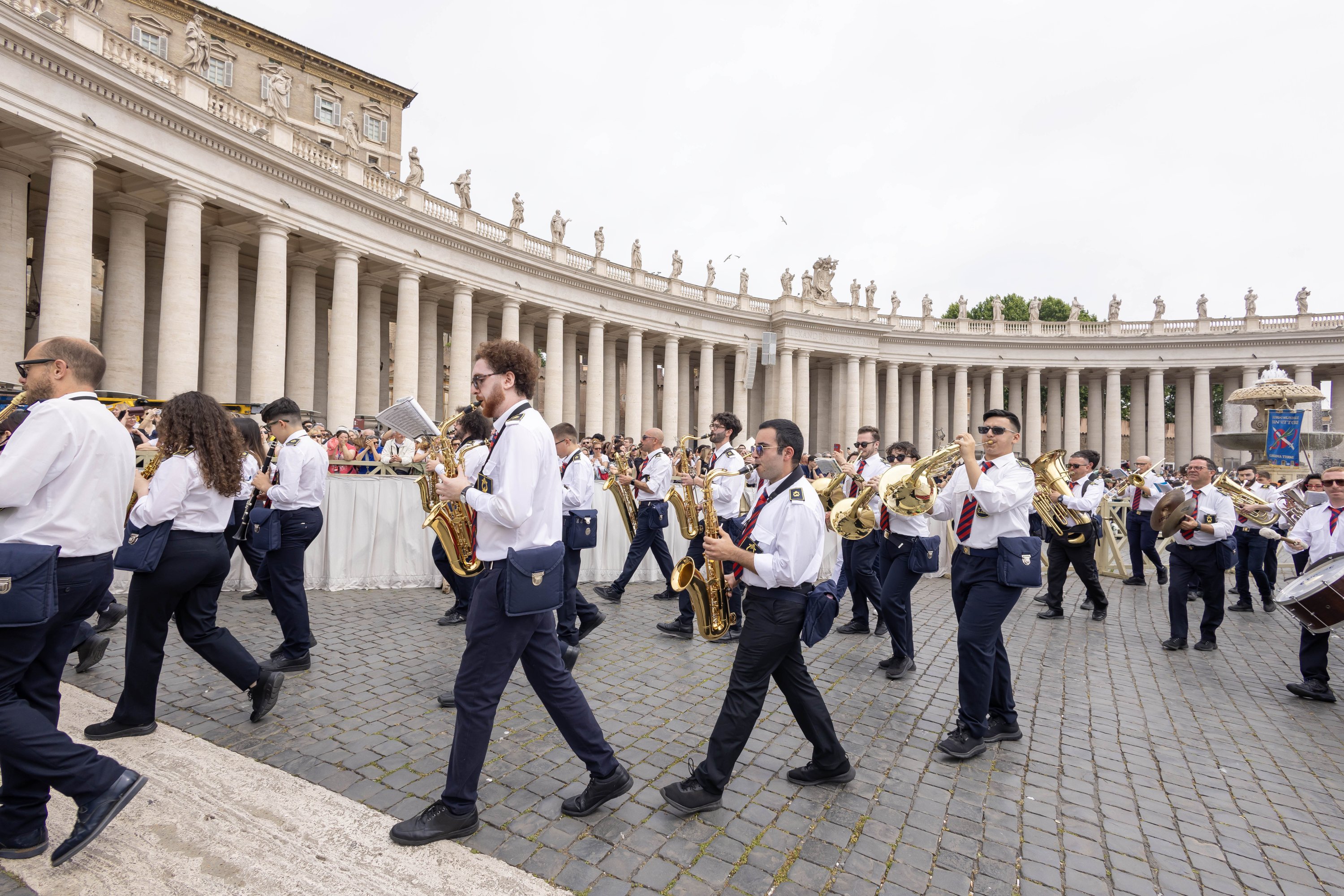
Posted on 05/12/2025 13:40 PM (Detroit Catholic)
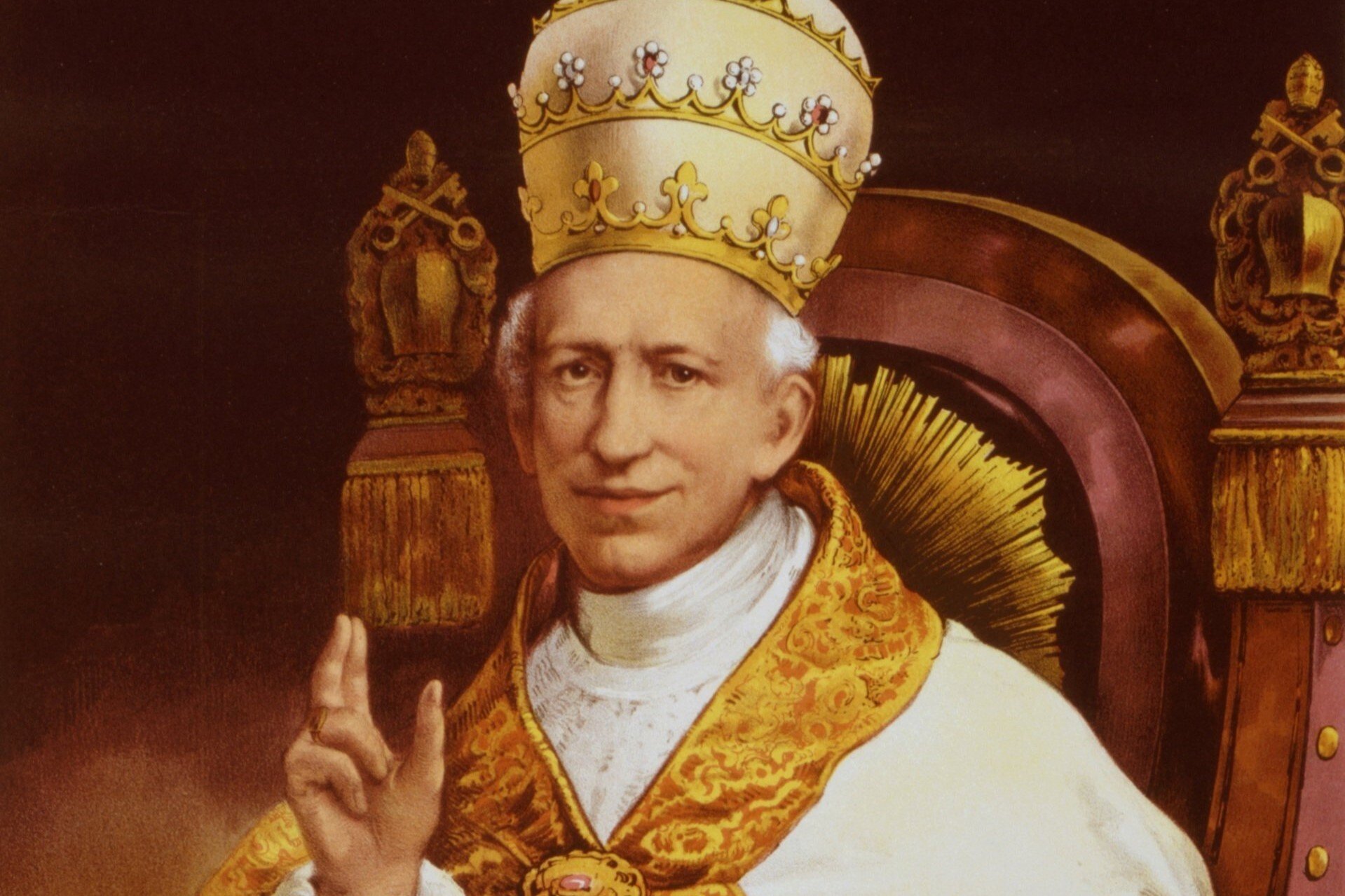
Posted on 05/12/2025 13:22 PM (CNA Daily News)
 Pope Leo XIV speaks to journalists on May 12, 2025, in the Paul VI Audience Hall at the Vatican. / Credit: Veronica Giacometti/EWTN News
Pope Leo XIV speaks to journalists on May 12, 2025, in the Paul VI Audience Hall at the Vatican. / Credit: Veronica Giacometti/EWTN News
Vatican City, May 12, 2025 / 09:22 am (CNA).
In his first address to international media on Monday, Pope Leo XIV thanked journalists for their service to the truth and for communicating peace in difficult times.
“We are living in times that are both difficult to navigate and to recount. They present a challenge for all of us, but it is one that we should not run away from,” Leo said in the Pope Paul VI Audience Hall on May 12. “On the contrary, they demand that each one of us, in our different roles and services, never give in to mediocrity.”
“Thank you, dear friends, for your service to the truth,” he said, also underlining the importance of preserving free speech and the free press.
In one of his first audiences, Pope Leo XIV met with several thousand members of the international press to thank them for their “long and tiring days” of work over the last few weeks as they reported on Pope Francis’ death, funeral, and the conclave.
Before his prepared remarks in Italian, the new pope spoke in English, thanking everyone for the warm reception and the applause.
“They say when they clap at the beginning it doesn’t matter much… If you are still awake at the end, and still want to applaud… Thank you very much!” Leo said.
Pope Leo XIV met with media professionals who covered the papal election in the Vatican's Paul VI Hall and urged them to serve the truth and promote peace, emphasizing that communication helps shape a society’s culture. pic.twitter.com/oQtHjSomAy
— EWTN Vatican (@EWTNVatican) May 12, 2025
Turning to the present moment, Leo said: “The Church must face the challenges posed by the times. In the same way, communication and journalism do not exist outside of time and history. St. Augustine reminds of this when he said, ‘Let us live well, and the times will be good. We are the times’ (Discourse 311).”
The pontiff, elected May 8, also emphasized the important role of communications for promoting peace.
“In the Sermon on the Mount, Jesus proclaimed: ‘Blessed are the peacemakers’ (Mt 5:9). This is a beatitude that challenges all of us, but it is particularly relevant to you, calling each one of you to strive for a different kind of communication, one that does not seek consensus at all costs, does not use aggressive words, does not follow the culture of competition, and never separates the search for truth from the love with which we must humbly seek it,” Leo said.
“Peace,” he continued, “begins with each one of us: in the way we look at others, listen to others, and speak about others. In this sense, the way we communicate is of fundamental importance: We must say ‘no’ to the war of words and images, we must reject the paradigm of war.”
According to the pope, one of the most important challenges for media today is promoting communication that moves away from the confusion of the “Tower of Babel” and the “loveless languages that are often ideological or partisan.”
“Your service, with the words you use and the style you adopt, is crucial,” he underlined. “As you know, communication is not only the transmission of information, but it is also the creation of a culture, of human and digital environments that become spaces for dialogue and discussion. In looking at how technology is developing, this mission becomes ever more necessary.”
He mentioned in particular the responsibility and discernment needed in the use of artificial intelligence — a responsibility that involves everyone according to his or her age.
On the topic of truth, Leo XIV reiterated the Church’s solidarity with journalists who have been imprisoned “for seeking to report the truth” and appealed for their release.
“The Church recognizes in these witnesses — I am thinking of those who report on war even at the cost of their lives — the courage of those who defend dignity, justice, and the right of people to be informed, because only informed individuals can make free choices,” he said. “The suffering of these imprisoned journalists challenges the conscience of nations and the international community, calling on all of us to safeguard the precious gift of free speech and of the press.”